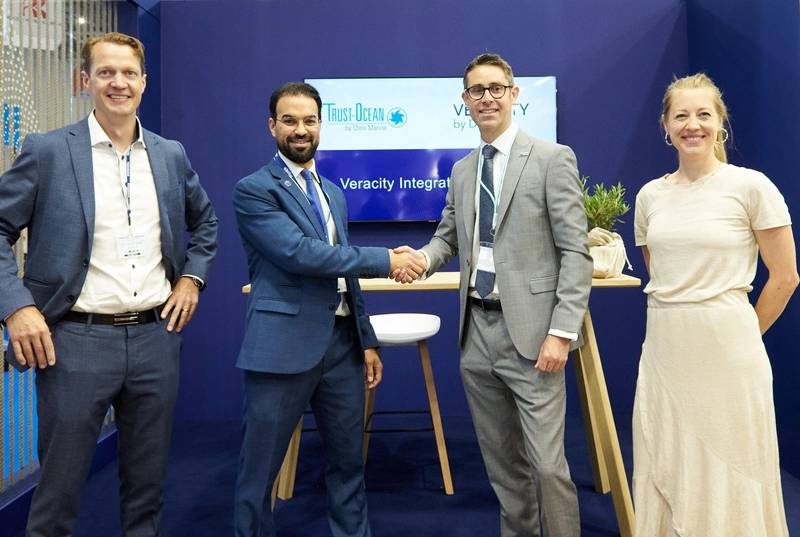China condemns NATO’s “provocations, lies and slander” in its relations with Russia | News on the war between Russia and Ukraine

NATO accuses China of playing a key role in Russia’s war in Ukraine and expresses concern about its nuclear and space capabilities.
China has warned NATO against “provoking a confrontation” over its relations with Russia after the Western military alliance accused Beijing of being a “key enabler” of Moscow’s war against Ukraine.
Thursday’s warning came as NATO leaders meeting in Washington DC pledged to strengthen Ukraine and Europe’s defenses against Russia and made clear that China was also increasingly becoming the alliance’s focus.
A spokesman for Beijing’s mission to the European Union said NATO should “stop exaggerating the so-called threat from China and provoking confrontation and rivalry, and do more to contribute to world peace and stability.”
China, which has deepened its strategic ties with Russia, refuses to condemn Moscow’s invasion of Ukraine. It presents itself as a neutral party to the war and says that, unlike the United States and other Western countries, it is not providing lethal aid to either side.
However, Beijing has offered an important lifeline to the isolated Russian economy; trade there has been booming since the conflict began.
In their final communiqué on Wednesday, the 32 NATO members expressed their “deep concern” about the deepening partnership between Beijing and Moscow. They said China had “become a crucial supporter of Russia’s war against Ukraine through its so-called borderless partnership and its extensive support for the Russian defense industry.”
“This increases the threat Russia poses to its neighbors and to Euro-Atlantic security,” they said, calling on China to “cease all material and political support for Russia’s war effort.” Beijing “cannot allow the largest war in Europe in recent history without negatively affecting its interests and reputation,” they added.
NATO Secretary General Jens Stoltenberg told reporters that China was supplying equipment, microelectronics and tools that enabled Russia to “build the missiles, build the bombs, build the planes, build the weapons with which they are attacking Ukraine.”
He said it was the first time that all NATO allies had expressed this so clearly in an agreed document.
However, a Beijing spokesman rejected the criticism, saying: “As we all know, China is not the cause of the crisis in Ukraine.”
“The statement of the NATO summit in Washington is full of Cold War mentality and warlike rhetoric, and the China-related content is full of provocations, lies, incitement and slander,” the official told reporters.
They added that China’s core position is to “promote peace talks and a political solution,” referring to a 12-point peace plan Beijing released over a year ago that sets out general principles for ending the war.
The plan met with a muted response in Russia and Ukraine at the time.
In their statement this year, NATO member states also reiterated that China poses “systemic challenges” to Euro-Atlantic security, including through persistent malicious online and hybrid activities, such as disinformation campaigns.
They also expressed concerns about China’s capabilities and activities in space and raised alarm as Beijing is rapidly expanding and diversifying its nuclear arsenal, deploying additional warheads and a greater number of sophisticated delivery systems.
Rachel Rizzo, a nonresident senior fellow at the Atlantic Council’s Europe Center, said NATO does not view China as a threat but as a challenge.
NATO has made clear that “negotiations on China are not about pushing the alliance into the Indo-Pacific, but rather about responding to China’s political, economic and technological advances into Europe, as well as China’s acquisition of European infrastructure,” Rizzo told Al Jazeera. “So it’s not about expanding NATO’s areas of operation, it’s about responding to exactly this interconnected geography that we’re seeing around the globe right now.”
The NATO summit was attended by heads of state and government and representatives of the Alliance’s partner countries in the Asia-Pacific region: Australia, New Zealand, Japan and South Korea. Asian countries have strengthened their ties with NATO in recent years as concerns grow over China’s assertiveness in the South and East China Seas.
In the final declaration, NATO members reaffirmed the importance of partners in the Asia-Pacific region to the Alliance and said they would “strengthen dialogue to address cross-regional challenges.”
It said NATO and partners in the Asia-Pacific region plan to launch four projects to support Ukraine, strengthen cooperation on cyber defense, combat disinformation and work on artificial intelligence.
NATO members said these projects would “enhance our ability to work together on common security interests.”



